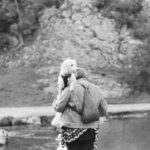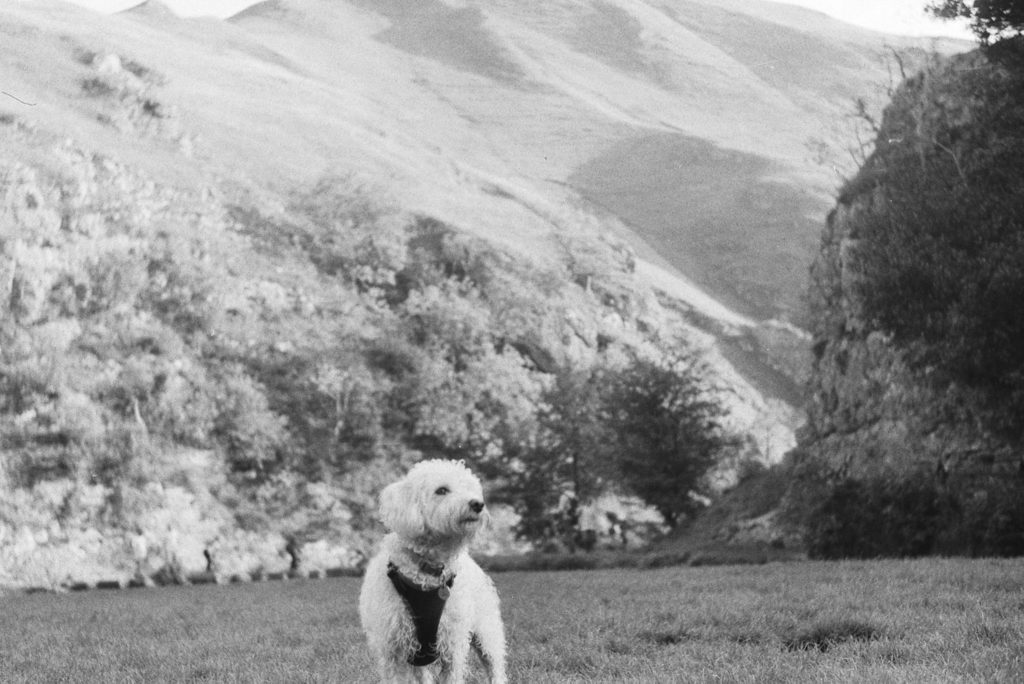
Mabli Godden is a dramaturg, community artist and theatre practitioner. She graduated in Theatre Studies from the University of Glasgow in 2014 and went on to complete an MLitt in Playwriting and Dramaturgy in 2018, specialising in dramaturgical practice.
In a post to mark Mental Health Awareness Week, Mabli reflects on her show ‘Animal Hour’, which delved into the challenges of coping with mental illness, and expands on how such issues inform and drive her work.
Tell us a little about your production, ‘Animal Hour’.
‘Animal Hour’ is a piece that I’ve been sitting on for a while. I was diagnosed with anxiety disorder and depression eleven years ago and have been through the wringer with tests, medications and consultant visits since then. I have often received fantastic care but it’s also been a very frustrating, demoralising and scary experience. I knew I wanted to create work not only about my own mental health journey but also the commonalities and differences in the mental health journeys of others.
You’re alive. I’m alive. You’re calm. I … can get there.
‘Animal Hour’ by Mabli Godden
One of the best things I have ever done for my mental health (and just for life in general!) is getting my dog, Pero. He helps me cope on a daily basis and I’m able to live a much freer and more relaxed life because of him. I had been getting frustrated that psychological service animals and, more broadly, the health support that animals can provide, is not legally recognised in the UK and wanted to make a piece demonstrating how incredibly supportive animals can be. A mutual relationship of trust and care can work wonders for people struggling with their mental health.
I realised that in order to demonstrate this I would have to share my own story—a scary prospect but an important thing to do. I worked hard with the wonderful dramaturg Erin McGee to find a way to tell my story, incorporate Pero’s presence and demonstrate that, although my mental health journey is not (and never will be) finished, I have been able to find coping strategies and support networks. I wanted to be honest about the negative effects anxiety disorder and depression can have whilst demonstrating that there are many ways to stop them taking over your life.

Is there anything that surprised you in the process of making or sharing the show?
Much of what happened was a surprise to me. I’m not a natural performer and the prospect of performing my own work, especially such a personal piece, was absolutely terrifying! However, it was important to me to share my own story and confidently accept my own experiences in a public way. Externalising feelings and experiences that I digest in a very interior way was a massive challenge. I had become fixed on the idea that I had to do everything myself or the final piece wouldn’t be true to what I was trying to express. I quickly realised that theatre is collaborative for a reason, and that accepting support and advice from others would not cheapen the truth of what I was saying but rather highlight my narrative in a theatrical manner. The collaborative nature of developing a performance reflects the collaboration involved in mental health support and recovery in a way that I didn’t expect.
I was also surprised to discover how varied audience responses were. Different people connected to different elements of the performance and often reacted to and shared things I thought were solely personal to me. It was heartening to know that others shared these experiences, especially as an aim of the show was to encourage community-building amongst individuals struggling with their own mental health.
Is there a balance to be struck, in your experience, between the explicit and implicit handling of mental health issues in your creative work?
Mental health is a massive part of my life, something I know so intimately, that it was a logical step to begin developing work about it. I create work with mental health in mind in a variety of mediums, be that creative, academic or through my community practice. In all cases, I believe it’s vitally important to retain an awareness that no experience is universal, that even those diagnosed with the same condition can experience it in completely different ways. Being too black and white can belittle someone’s experience.
The debate between explicit and implicit handling very much depends on context. I believe that conducting frank and explicit public dialogues around mental health is very important. However, creative work often calls for a more implicit approach, allowing audiences to read the work in a way that interrelates with their own experiences.
For ‘Animal Hour’ it was important to address anxiety in a very explicit manner but there are more subtle references within the staging too. For example, I surround myself with various objects that I have used at different points in my life to create a sense of safety and security, each with their own narrative which influences the staging as a whole. These objects, however, will mean different things to different people, and enables the narrative to follow different pathways depending on the perspective of the viewer.
More than ever the creative sector is engaging with health and wellbeing. This month’s Scottish Mental Health Arts & Film Festival is a prime example. Is there anything that you’d like to see more of in the Glasgow theatre scene with regards to this?
SMHAF is a fantastic festival that engages with mental health through a range of creative mediums and allows makers to experiment with their practice whilst engaging with this important topic. The spectrum of work in their programme is exciting and indicative of the increase in dedicated work around mental health in the Scottish creative scene. Their inclusion of practitioners from outside of Scotland brings us into an international community of creatives and places us at the core of an important dialogue surrounding mental health and creative practice.
I would like to see more work that directly engages with the audience’s journey as they experience it. I am fascinated by the collaboration of consciousnesses that inform creative practice and believe that the audience’s intention and response is just as important as that of the maker.
You were awarded the Alasdair Cameron Scholarship to support the creation of ‘Animal Hour’. How has studying at the University of Glasgow had an impact on your work and creative thinking?
The University of Glasgow has had a massive impact on my work and thinking, both creatively and academically. I studied Theatre in Glasgow as an undergraduate and then an MLitt in Playwriting and Dramaturgy. Having time to cultivate my academic interests – however weird or obscure! – with the support of talented and generous academics has allowed me to develop a practice that was very much in its infancy when I arrived. It gave me the opportunity to streamline my practice and develop it over time through a broad range of projects and challenges.
The Alasdair Cameron Scholarship gave me the freedom to experiment with an idea that, whilst very important to me, has had to be placed on the back-burner for a while. an opportunity I greatly appreciate.
As a student with mental health problems I also received fantastic support, both from the Theatre Studies and Disability Services. Staff were respectful and supportive whenever I was struggling with my health and created an environment that allowed me to tackle my health issues whilst maintaining my studies.

And finally, what’s next for you?
I am involved in two new writing productions as a dramaturg and continue to work as a freelance community artist and theatre practitioner. I also hope to start a PhD investigating audience responses to creative practice and objects as a means to therapeutic intervention.
‘Animal Hour’ will also be going further. Pero and I are working on further developing the piece whilst still making sure he has plenty of time to nap and chase squirrels!
Artist Biography
Mabli Godden is a dramaturg, community artist and theatre practitioner. She graduated in Theatre Studies from the University of Glasgow in 2014 and went on to complete an MLitt in Playwriting and Dramaturgy in 2018. She has a particular interest in the therapeutic intentions of making and absorbing creative work and the holistic benefits of storytelling.
She is currently developing work considering the relationship between performance, storytelling and mental health. Mabli has worked on a number of projects across the UK, having worked with a range of companies including B Arts, Rotten Park Road, Bridgeman Arts, National Youth Theatre and the Scottish Mental Health Arts and Film Festival. She has also written academically and spoken at conferences on the topic of Arts and Health.

